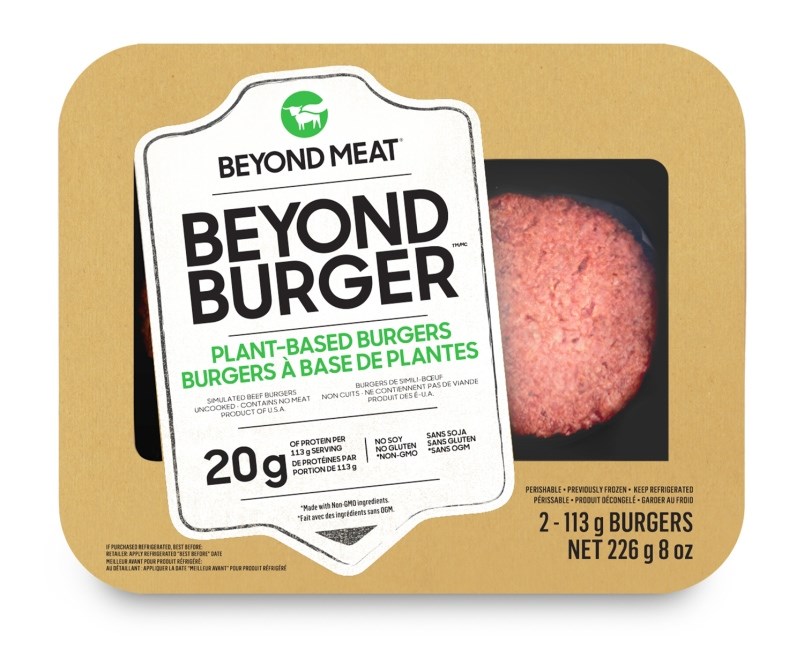I was in Squamish in the middle of a grocery store aisle, picking up a few things for our camping trip, when I heard a young man behind me say to his friend, “Oh! Beyond Beef,” then pause to add, “...but not beyond packaging.”
I’ve had the exact same thought.
I actually love those Beyond Beef burgers, but what’s with all that plastic? It’s a bit of a head-scratcher.
Many people are moving (slowly, slowly) away from an animal-based diet for all sorts of reasons. For some, it’s personal health, for others an issue of the ethical treatment of animals, but for a good many of us it’s about trying to reduce our footprint on the planet.
Earlier this month, the UN panel on agriculture released a somewhat terrifying report outlining the ways we are completely degrading the planet’s soil, which, in turn, is amping up climate change. However, countries can counter the trend, said the report, by moving away from an animal-based diet towards a plant-based one.
I’ve actually been a vegetarian since I was a kid and my dad came home and asked my sisters and I how we’d feel about killing and eating our much-loved dog, Ally. We, of course, were aghast, but his point was taken. I was 10 at the time. Although he never insisted the rest of the family take his lead, meat just seemed to evolve out of all of our diets.
Since then, I’ve come to not just think about the treatment of animals but also the environment — and I’m not alone. According to a recent survey by Insights West, “while only seven per cent of Canadians currently follow a primarily plant-based diet, a significant number (27 per cent) are considering doing so in the future.” The reasons cited are concerns over the environment and animal cruelty.
Back to Beyond Beef; it’s well and good to have a vegetarian burger, but it seems a bit counter-productive if the environmental gains from reducing meat are lost in a pile of plastic.
And here’s the other thing, cost. None of this is cheap. In fact, I wonder if they need all that packaging to justify charging $8 for two measly burgers (OK, not so measly, but still).
It seems if you really want to do right by the planet, and not go broke, you’ve got to do it yourself, make your own bean burgers, for example. The problem here is I’m lazy. I’m not one for soaking beans. So, it’s a conundrum; I want to do the right thing, but I’m cheap and lazy. So, when in doubt, blame the system. And, frankly, it kinda deserves it. We have a food industry where, too often, the wrong things are rewarded. Transforming rainforests into cattle ranches to supply fast-food chains with cheap meat for high-fat burgers has made good economic sense — despite it choking the planet, not to mention our arteries.
But alternative food systems are growing. Our feature this week is about a computer engineer and nurse team who are working towards just that, a farm that is small-scale and holistic (it occurs to me I should sign up for one of their weekly veggie boxes).
But I have to leave you with a road sign I saw just last weekend: “A well-balanced meal is a burger in each hand.”
...No point in losing our sense of humour about things.



